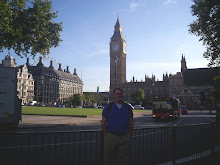Rush Limbaugh and other conservatives decided to take some school bus bullying and use it to
ratchet up racial tension in an effort to discredit President Obama. Limbaugh said, "In Obama's America, the white kids now get beat up with the black kids cheering."
In the 7th grade I was the victim of bullying by some African American kids and I do think that race was a factor in the bullying. Due to court ordered busing, in 7th grade I attended a largely African American school located in a largely African American part of Jacksonville. At the time, I was a small, studious, shy white kid. What I think happened is these African American boys, like all bullies, felt comfortable enough to use physical violence on those they perceived as weaker or out of place. Those boys were on their home turf and they know how to maneuver around what was probably a badly administered school. They were, in effect, African-American boys who bullied white kids because in that environment being white marked people as a potential victim. Race was not the reason for the bullying but it played a factor in why people felt like they could bully and why certain other people were targeted for bullying.
By the way, this happened 20 years ago in the United States of George Herbert Walker Bush. I also know that in the administration of just about every President in American history, black people faced the very real possibility of being hung from a tree for any number of supposed transgressions against white people. The trajectory of American history is filled with racial tensions, and the majority of those tensions come from whites using threats and violence against people with black skin. Whatever violent talk or violent acts African Americans committed against white people came in large part as a response to a long history of whites using violence to prevent African Americans from gaining even a shred of basic human rights. I know that racial tensions exist and have exited throughout our nation's history.
I also know that conservatives will use racial tensions to benefit their own cause. This use of racial tensions is a long staple of southern politics and has been used on the national level since Richard Nixon's "Southern Strategy." From Ronald Reagan's talk of "state's rights" in Philadelphia, Mississippi to Geroge H. W. Bush's use of Willie Horton to all the talk about welfare queens, conservatives have used racial tensions to achieve political power.
In my own memory, I can recall people I knew when I was in college in Mississippi during the mid 90s calling African Americans Democrats as a racial epitaph because all the white people voted Republican. I know the Republicans used the fact that Democrats removed the Confederate battle emblem from the Georgia state flag to gain full political power in 2002. I know that conservative Republicans in Augusta, Georgia supported a Democratic challenger for State Senate because the incumbent Republican supported the flag change.
Just in the past year, Rep. Lynn Westmorland(R-GA-3)
called Obama "uppity." Just before President Obama spoke before Congress on healthcare Sen. Saxby Chambliss(R-GA), who during the 2008 election
all but admitted that the core of his support came from white people opposed to African Americans gaining political power,
said that Obama needed to express humility during his address. It is no wonder then that Rep. Joe Wilson(R-SC-2), a former aide to Strom Thurmond and who voted to keep the Confederate flag on top of the South Carolina Statehouse, would heckle Obama over a provision regarding illegal aliens.
Much of the vitriol directed as Obama is because of his race and considering the role race plays in American life and politics this should not be a surprise. That is the reality and it will be so as long as it pays off for public figures and politicians. The path to conservative power has for decades been through the use of racial tensions, and they will continue to stoke racial fears until it no longer works for them. Anyone claiming ignorance of this fact is being deliberately ignorant.
